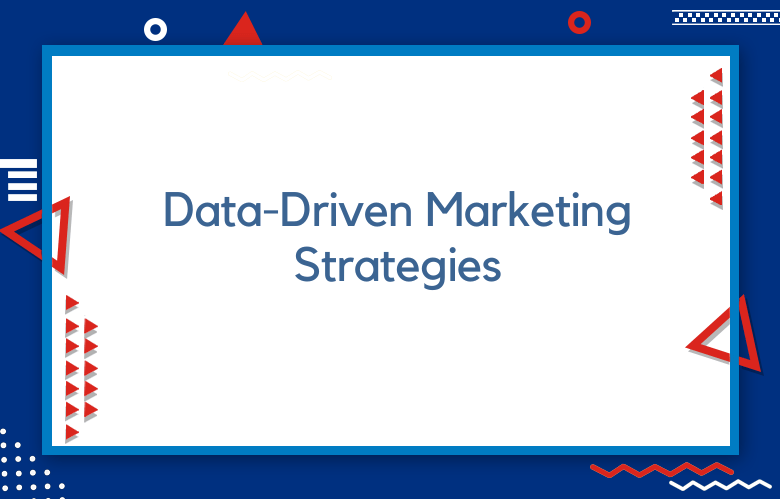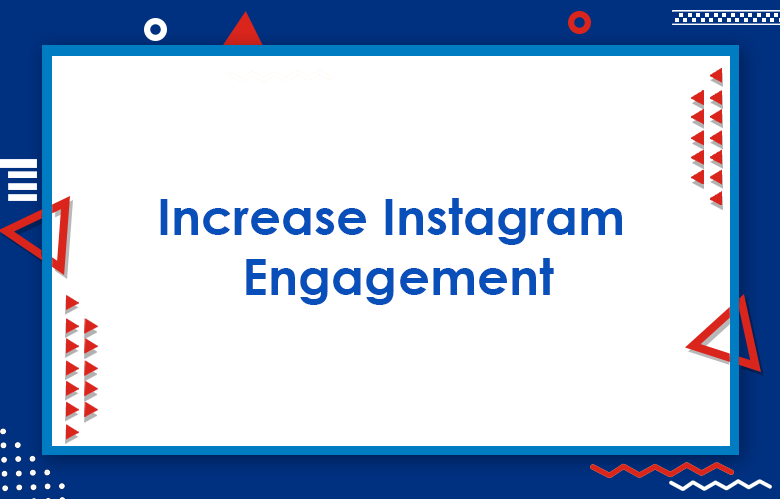Advanced Data-Driven Marketing Strategies using Data Science Algorithms

Almost every marketing decision is now data-driven. Marketers collect data from various sources, including website interactions, social media, surveys, and customer relationship management (CRM) systems.
Predictive analytics algorithms can help make sense of all that data and guide marketing decisions.
We’ll discuss three advanced data-driven marketing strategies that use predictive analytics algorithms. Stay tuned for the next installment in our series on predictive analytics for marketers!
As a marketer, you’re always looking for ways to stay ahead of the competition. And if you need to start using data science algorithms to drive your marketing strategies, you’re already behind.
We’ll explore some advanced data-driven marketing strategies you can use to optimize your campaigns and improve your ROI. So, read on and learn how to use data science to its fullest potential!
Advanced Data-Driven Marketing Strategies Using Data Science Algorithms
Data-driven marketing strategies use data and analytics to drive decision-making and tactics. To create advanced data-driven marketing strategies, it is essential to use data science algorithms to analyze large data sets and identify patterns and trends. It can help marketers better understand their target audience, develop more effective marketing campaigns and improve the overall performance of their marketing efforts.
One way to use data science algorithms in marketing is to develop customer segmentation models. These models use customer demographics, behavior, and preferences data to group customers into distinct segments based on shared characteristics. It can help marketers tailor their messaging and marketing tactics to each piece, increasing the relevance and effectiveness of their marketing efforts.
Another way to use data science algorithms in marketing is to develop predictive models. These models use customer behavior and characteristics data to predict future customer actions and preferences. It can help marketers anticipate customer needs and develop marketing strategies that are more likely to be successful.
Finally, data science algorithms can be used to optimize marketing campaigns. For example, algorithms can identify a campaign’s most effective channels, messaging, and timing. It can help marketers maximize the return on investment for their marketing efforts and ensure they reach their target audience most effectively.
Different types of Advanced Data-Driven Marketing Strategies using Data Science Algorithms
Several advanced data-driven marketing strategies can be developed using data science algorithms. Some examples include:
Customer segmentation models
These models use customer demographics, behavior, and preferences data to group customers into distinct segments based on shared characteristics. It can help marketers tailor their messaging and marketing tactics to each piece, increasing the relevance and effectiveness of their marketing efforts.
Here is an example of how a customer segmentation model might be implemented using the Python programming language and the scikit-learn machine learning library:
import pandas as PD
from sklearn.Cluster import KMeans
Load the data
data = PD.readcsv(“customerdata.csv”)
Define the features to use for clustering
X = data[[“age,” “gender”, “income”, “purchase_history”]]
Train the model
model = KMeans(n_clusters=3)
model.fit(X)
Use the model to predict the cluster for each customer
predictions = model.predict(X)
Add the cluster predictions to the data
data[“cluster”] = predictions
Analyze the clusters to identify distinct segments
cluster1 = data == 0] cluster2 = data == 1] cluster3 = data == 2]
Print the characteristics of each cluster
print(“Cluster 1:”)
print(cluster1.describe())
print(“\nCluster 2:”)
print(cluster2.describe())
print(“\nCluster 3:”)
print(cluster3.describe())
This code uses the K-Means clustering algorithm to group customers into three distinct segments based on their “age,” “gender,” “income,” and “purchase_history” data. The characteristics of each cluster are then printed, allowing marketers to better understand each segment’s aspects and develop tailored marketing strategies.
Predictive modeling
These models use customer behavior and characteristics data to predict future customer actions and preferences. It can help marketers anticipate customer needs and develop marketing strategies that are more likely to be successful.
Here is an example of how a predictive model for customer behavior might be implemented using the Python programming language and the scikit-learn machine learning library:
import pandas as pd
from sklearn.linear_model import LogisticRegression
Load the data
data = PD.readcsv(“customerdata.csv”)
Define the features and target
X = data[[“age,” “gender,” “income,” “purchase history“]] y = data[“future purchase“]
Train the model
model = LogisticRegression()
model.fit(X, y)
Use the model to make predictions
predictions = model.predict(X)
Evaluate the model performance
accuracy = model.score(X, y)
print(“Accuracy:”, accuracy)
This code uses a logistic regression model to train a predictive model on customer data. The model is trained on the “age,” “gender,” “income,” and “purchase history” features and uses this data to predict the “future purchase” target. The model is then used to make predictions on the same data, and the accuracy is evaluated to assess the model’s performance.
Marketing optimization
Algorithms can be used to identify the most effective channels, messaging, and timing for a particular campaign. It can help marketers maximize the return on investment for their marketing efforts and ensure they reach their target audience most effectively.
Here is an example of how a marketing optimization model might be implemented using Python programming language and the Scikit learn machine learning library:
import pandas as pd
from sklearn.ensemble import RandomForestRegressor
Load the data
data = PD.readcsv(“marketingdata.csv”)
Define the features and target
X = data[[“channel,” “timing,” “message”]] y = data[“response_rate”]
Train the model
model = RandomForestRegressor()
model.fit(X, y)
Use the model to predict the response rate for different marketing campaigns
channel1 = “email”
timing1 = “morning”
message1 = “discount”
response_rate1 = model.predict([[channel1, timing1, message1]])
channel2 = “social media”
timing2 = “afternoon”
message2 = “promotion”
response_rate2 = model.predict([[channel2, timing2, message2]])
Print the predicted response rates
print(“Response rate for campaign 1:”, responserate1)
print(“Response rate for campaign 2:”, responserate2)
This code uses a random forest regression model to train a marketing optimization model on historical marketing data. The model is trained on the “channel,” “timing,” and “message” features and uses this data to predict the “response_rate” target. The model is then used to indicate the response rate for two marketing campaigns, allowing marketers to identify the most effective channels, timing, and messaging for their campaigns.
Sentiment analysis
Algorithms can analyze customer feedback and social media posts to identify trends and sentiments about a particular brand or product. It can help marketers understand how their customers feel about their brand and identify areas for improvement.
Here is an example of how a sentiment analysis model might be implemented using Python programming language and the Scikit learn machine learning library:
Import pandas as pd
from sklearn.feature extraction.text import CountVectorizer
from sklearn.linear model import LogisticRegression
Load the data
data = PD.readcsv(“customerfeedback.csv”)
Define the features and target
X = data[“feedback”] y = data[“sentiment”]
Transform the text data into numerical features
vectorizer = CountVectorizer()
X = vectorizer.fit_transform(X)
Train the model
model = LogisticRegression()
model.fit(X, y)
Use the model to predict the sentiment of new feedback
feedback1 = “I love this product”
sentiment1 = model.predict(vectorizer.transform())
feedback2 = “I hate like this product”
sentiment2 = model.predict(vectorizer.transform())
Print the predicted sentiments
print(“Sentiment for feedback 1:”, sentiment1)
print(“Sentiment for feedback 2:”, sentiment2)
This code uses a logistic regression model to train a sentiment analysis model on customer feedback data. The text data is transformed into numerical features using a count vectorizer, and the model is trained on these features to predict the “sentiment” of each piece of feedback. The model is then used to indicate the sentiment of two new pieces of feedback, allowing marketers to understand their customers’ attitudes toward their brand or product.
Personalization
Algorithms can be used to develop personalized marketing campaigns tailored to individual customers based on their preferences and behavior. It can help increase customer engagement and loyalty.
Overall, advanced data-driven marketing strategies using data science algorithms can help marketers better understand their target audience, develop more effective marketing campaigns and improve the overall performance of their marketing efforts.
Here is an example of how a marketing personalization model might be implemented using Python programming language and the scikit-earn machine learning library:
Import pandas as pd
from sklearn.feature_extraction.text import TfidfVectorizer
from sklearn.neighbors import NearestNeighbors
Load the data
data = PD.readcsv(“customerdata.csv”)
Define the features and target
X = data[[“age,” “gender”, “income”, “purchase_history”]] y = data[“preferences”]
Transform the text data into numerical features
vectorizer = TfidfVectorizer()
X = vectorizer.fit_transform(X)
Train the model
model = NearestNeighbors()
model.fit(X, y)
Use the model to find the most similar customers for a new customer
customer data = customer preferences = model.neighbors(, nneighbors=3, return_distance=False)
Print the preferences of the most similar customers
print(“Similar customer preferences:”)
for preferences in customer_preferences:
print(data.iloc[“preferences”])
This code uses a nearest neighbors model to train a marketing personalization model on customer data. The model is trained on the customer’s “age,” “gender,” “income,” and “purchase_history” data and uses this data to predict their “preferences” for future marketing campaigns. The model is then used to find the most similar customers for a new customer. Their preferences are printed, allowing marketers to develop personalized marketing campaigns for new customers based on the likes of similar customers.
Code Example of advanced Data-Driven Marketing Strategies using Data Science Algorithms
Here is an example of how a predictive model for customer behavior might be implemented using the Python programming language:
import pandas as PD
from sklearn.Ensemble import RandomForestClassifier
Load the data
data = PD.readcsv(“customerdata.csv”)
Define the features and target
X = data[[“age,” “gender,” “income,” “purchase history“]] y = data[“future purchase“]
Train the model
model = RandomForestClassifier()
model.fit(X, y)
Use the model to make predictions
predictions = model.predict(X)
Evaluate the model performance
accuracy = model.score(X, y)
print(“Accuracy:”, accuracy)
This code uses a random forest classifier to train a predictive model on customer data. The model is trained on the “age,” “gender,” “income,” and “purchase history” features and uses this data to predict the “future purchase” target. The model is then used to make predictions on the same data, and the accuracy is evaluated to assess the model’s performance.
Conclusion
Data is the most valuable commodity in the world and will only become more critical—any business that wants to be successful needs to have a data-driven marketing strategy.
Data science algorithms are critical to this success. Understanding and leveraging these advanced data-driven marketing strategies can make your company great.
We offer data-driven marketing consulting services if you need help implementing these strategies or figuring out where to start. We’ll work with you to create a customized plan to help you achieve your desired results.
Contact us today to learn more about our services and how we can help your business to the next level.
Call: +91 9848321284
Email: [email protected]



